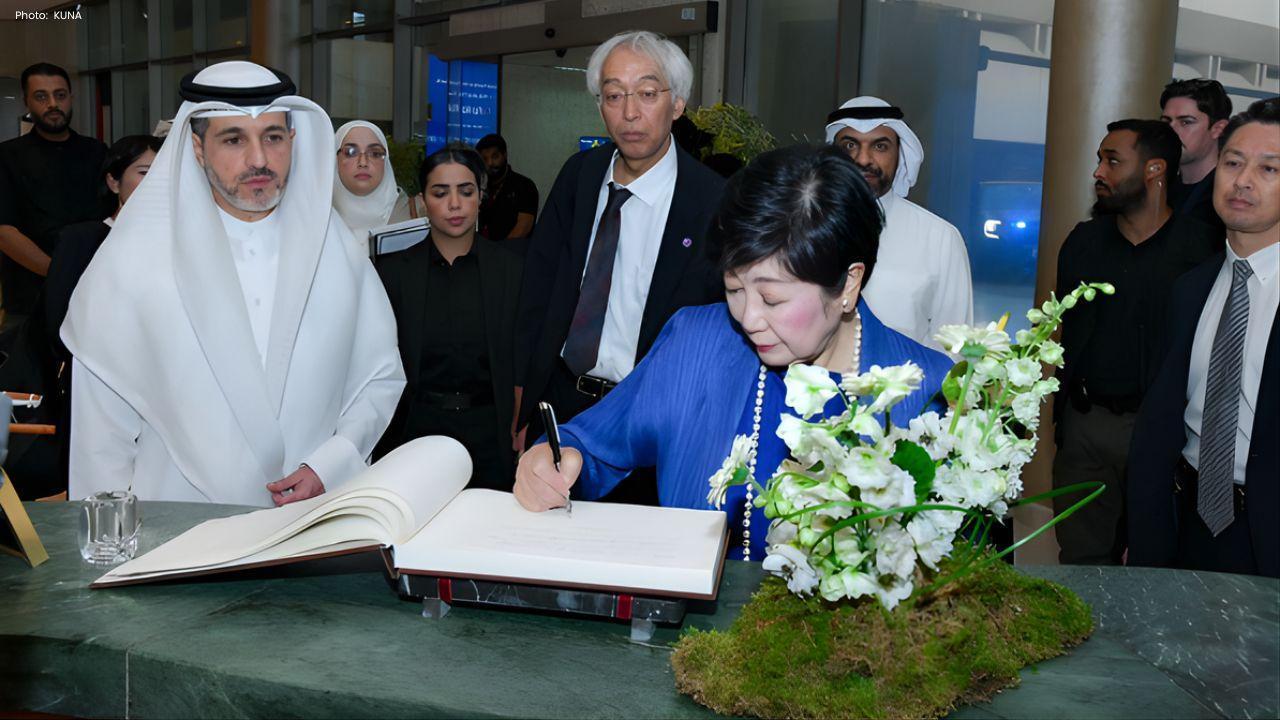
Post by : Anis Al-Rashid
The way a day begins has measurable effects on performance and wellbeing. A reliable, purposeful morning routine can improve concentration, mood regulation and overall health. Evidence links steady morning practices with better attention, emotional balance and long-term outcomes.
Leaders across business, sport and the arts often credit intentional morning patterns for improved results. The main challenge is crafting routines that are realistic, supported by research, and aligned with each person’s responsibilities.
Grasping the building blocks of effective mornings—biological timing, habit mechanics and early momentum—helps turn chaotic starts into consistent advantages.
Human alertness follows circadian cycles. Maintaining a steady wake-up time helps stabilise these rhythms, improving sleep and daytime performance. Morning exposure to natural light cues the brain to release hormones that increase alertness.
Cortisol naturally rises after waking, preparing the body for activity. When used well, this hormonal pattern supports memory, focus and energy. Combining light exercise, calming practices and a nutritious meal during this window enhances these effects.
The brain is more adaptable in the early day, which can aid the formation of new behaviours. Regularly repeating a sequence of cues and actions strengthens neural pathways, making the routine easier to maintain over time.
Keeping wake times consistent anchors a morning plan. Even on days off, staying close to a regular schedule supports circadian stability. Early starts can be valuable primarily because they create uninterrupted time for focused work.
Morning movement raises blood flow and endorphins, sharpening mental clarity. Activities can range from stretching and brisk walking to resistance training—any choice that reliably energises the body and prepares the mind.
Short practices such as meditation, breathwork or journaling help reduce reactivity and improve emotional control. These techniques set a calmer tone and increase intentional decision-making for the day ahead.
A balanced breakfast and sufficient fluids support sustained energy and cognitive performance. Prioritise whole foods and water while avoiding high-sugar options that can lead to mid-morning energy drops.
Using morning time to identify top priorities and schedule focused work creates forward momentum. Reviewing objectives and allocating slots for critical tasks aligns intentions with what gets done.
Introduce one or two new habits first rather than overhauling the whole morning. Small, repeatable steps build consistency and reduce the chance of abandoning the routine.
Link new behaviours to established actions—for example, do a short stretch after brushing your teeth. Anchoring uses existing triggers to increase reliability.
Recognising progress supports habit retention. Simple rewards or tracking with an app or journal provide feedback and motivation to keep routines in place.
Completing important tasks early reduces procrastination and improves confidence. Early achievements influence decisions and interactions throughout the day, producing a cumulative positive effect.
Standardising morning actions frees mental resources for complex problems later. Automating simple choices—exercise, breakfast, a short planning session—preserves willpower for higher-stakes decisions.
Managing energy—through movement, rest and focused work—supports sustained productivity. A routine that balances activity and recovery helps prevent burnout while maintaining output.
Design mornings around personal demands. Students, workers, parents and creatives will prioritise different elements depending on their schedules and peak energy times.
Try variations in timing and order to find what fits. Monitor results over several weeks to spot patterns and refine the routine accordingly.
Rigid schedules can feel punitive; overly loose ones fail to build habit. Combine discipline with enjoyable rituals—reading, music or a favourite drink—to make the routine sustainable.
Trying to pack too many activities into the morning leads to burnout. Focus initially on three to five core habits and expand only when they are firmly established.
Early starts lose value if they reduce overall sleep. Maintain good sleep hygiene—limit screens before bed and keep a stable schedule—to protect performance.
Benchmarks can mislead. Tailor your routine to your own energy, responsibilities and objectives rather than copying someone else’s schedule.
Many business leaders use structured mornings—early rising, exercise, short reflection and planning—to concentrate on high-impact work and reduce distractions.
Athletes focus mornings on movement, nutrition and recovery. Warm-ups, targeted training and visualization prepare both body and mind for performance demands.
Creatives often reserve morning hours for uninterrupted deep work such as journaling or freewriting, tapping into greater mental flexibility early in the day.
Consistent morning habits support mood stability, resilience and a sense of control. Intentional starts reduce stress and build confidence through repeated small successes.
Practices that foster gratitude and perspective early on can improve interactions and decision-making, producing positive effects across the day.
Tools such as alarms, habit trackers and guided meditation apps can help sustain a routine. Use technology for structure and feedback, but avoid overreliance—habits should function without constant digital prompts.
Morning routines combine biological timing, habit mechanics and early momentum to shape daily outcomes. Small, consistent changes—anchored to personal goals—can create lasting improvements in focus, creativity and wellbeing.
By starting modestly, reinforcing progress and prioritising enjoyment, individuals can build morning patterns that support sustained performance and long-term growth.
Ultimately, an effective morning is not strict conformity but a tailored structure that aligns with one’s energy, aims and lifestyle. When mornings are optimised, each day becomes more productive and purposeful.
This article provides general information and does not replace medical or psychological advice. Readers should consider personal health, sleep needs and professional guidance when adjusting morning habits.










Munich To Host 2028 Final, Wembley And Camp Nou For 2029
UEFA confirms Munich will host the 2028 Champions League final, while Wembley and Camp Nou compete f

Indian Tennis Legend Rohan Bopanna Announces Retirement
Indian tennis star Rohan Bopanna retires at 45 after 20 years of success, with two Grand Slam titles

French Actor Tchéky Karyo Passes Away At Age 72
French actor Tchéky Karyo, known for Nikita and The Missing, dies at 72 after a battle with cancer,

New Zealand Beat England To Seal 3-0 ODI Series Sweep
New Zealand defeated England by two wickets in the third ODI at Wellington, sealing a 3-0 series swe

Dharmendra Admitted to Hospital After Breathing Issue
Veteran actor Dharmendra has been admitted to the ICU after facing breathing issues. His condition i

Hazlewood Stars As Australia Crush India In Second T20
Josh Hazlewood’s fiery 3-13 spell helped Australia bowl out India for 125 and chase the target easil